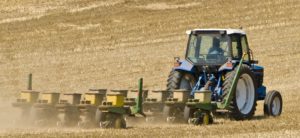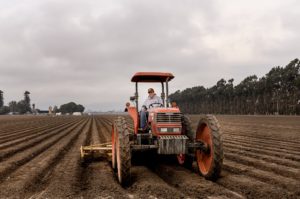Previous grantees say the key to a successful grant application is the same as a solid foundation to a farms business plan:
Layout a strategic blue-print of your farms short and long term vision. Local, provincial and federal government agencies are looking at people who think big and look at the granular scale of things. As there are thousands of applicants in this highly competitive funding area, you will need to follow these top 5 farm funding essentials in writing your proposal.
Assess your financial wants and needs
You will have to decide what type of funding you need to achieve your goals. Do you need funding for equipment? Or to develop your produce line more efficiently? Or to research new marketing venues? You need to firmly assess what requirement you need the funding for. Once you explore your options and assess your wants and needs, you can begin the next step.
Research all available farm grant options for your needs.
After your need is assessed, you will have to begin your market research. This is where the Canadian Grants Business Center comes in. We have invested thousands of hours of research in all available funding for farm and agricultural grants. For 2016 we have the latest funding programs available for you at your provincial and even federal level. We have identified funding programs for different types of farms (organic, artificial, etc…), different types of niches (organizational, research focused, environmental, etc…) and will direct you to the proper funding options available.
Create your Grant Case
Once you find the grant that suits you, you will need to make your business case by filing out a grant application. Your case needs to be clear and concise, follow all the grant requirements carefully, and communicate your potential positive impact on the economy. Communicate all your farming ideas clearly, do not make the grant administrator search to connect how the funding will help your farm based on the grant requirements. Focus on short and long term goals and how you can use the funding to achieve them.
Here are some more tips to keep in mind as you draft your grant application:
- Realistic timeline: Take into account weather factors and environmental changes. Make sure you give a timeline that can be met.
- Adequate resources: Make sure you show you can achieve your objectives you’re potential staffing.
- Evaluation plan: Show that you’re keeping track with a proper blueprint or project time line.
- Collaboration: Find others in your area that you can collaborate with, show you are willing to branch out and aide others with your project.
- Sharing: Transparency, everything needs to be layed out, no hidden fences.
Submit your application and prepare for post-mortem learning
Submit your application as soon as possible; there could be many obstacles along the way that you may not foresee. Be prepared for rejection, it is apart of the process, learn, adapt and achieve. Ask the granter why you didn’t get it, this can help you next time in being approved for funding. Don’t argue with the granter; just get feedback for next time.
If you are approved, congratulations, your next steps are critical in achieving your goals.
Continue being pro-active
Be active in the grant community; help your colleagues try to achieve your success. Talk about grants and how they can be beneficial for everyone. Also, you can apply for more funding any time if required as there are no rules on how much funding you can get.
The Canadian Grants Business Center is a leading source of information on Farm Grants and Business Grants. We do the research work, so you don’t have to. Contact us today to see what funding is available for you:



 nology, vast amounts of farm land, and an entrepreneurial population.
nology, vast amounts of farm land, and an entrepreneurial population.